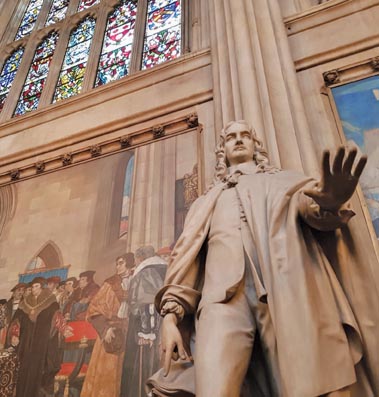As a sign of how politically sensitive verbal, online and physical attacks on and intimidation of parliamentarians has become, the Crown Prosecution Service (CPS) in its areas has begun recording all cases in which the complainant is a parliamentarian or member of their staff, where the offence is connected to their public role. The CPS will provide monthly notification to the Directors of Legal Services to aid effective monitoring. That’s according to Max Hill, director of public prosecutions at the CPS, in a letter to the senior Labour MP Harriet Harman, who chairs the Joint Committee on Human Rights.
The committee of MPs and peers is due to hear evidence from him on May 8, as part of its inquiry into threats to MPs and the right to demonstrate. It’s asking; what is the correct balance between the right to protest, including to protest against things an MP has said, and the democratic need for MPs to have the freedom to represent their constituents and communicate with the public?
Hill wrote that ‘the CPS will continue to make the decision to prosecute independently and fearlessly and, where the Code [for Crown Prosecutors] test is met, bring offenders to justice’. He said that whether or not ‘the line between rude and offensive has been crossed into grossly offensive and menacing, or the line between boisterous and loud has been crossed into threatening and abusive, may sometimes involve a difficult judgement call’.
He admitted that the CPS is still ‘working with partners to implement the relevant recommendations of the December 2017 report of the Committee on Standards in Public Life, including developing new guidance for [election] candidates’.
The CPS has he said ‘developed a new information pack that will support MPs in responding effectively to conduct that may potentially be a criminal offence’. As a sign that some MPs are not satisfied with CPS action or lack of it when incidents are sent to it, in a case of an unnamed Conservative MP when speaking having to face chants of ‘Nazi’, the CPS decided that the ‘evidential test’ was ‘not met’. The MP made a ‘Victim’s Right to Review’ request of the decision not to prosecute. The CPS chief prosecutor for Wessex upheld the CPS’ decision.
Hill’s letter to Harman on the Parliament website includes anonymised details of some cases of harassment or other online or physical world crime against MPs, and whether cases have gone to court (resulting in community sentences or suspended or actual prison terms) or were discontinued.
In giving evidence to the committee in January, the Conservative MP Sir Graham Brady said: “My sense is that it is more widespread at the moment and that social media is probably one of the reasons for it. It tends to coarsen discourse.” This echoes findings of the Committee on Standards in Public Life in December 2017; that ‘intimidatory behaviour is already affecting the way in which MPs are relating to their constituents, has put off candidates who want to serve their communities from standing for public offices, and threatens to damage the vibrancy and diversity of our public life’. In response in March 2018 the Prime Minister Theresa May said that the Government would act on the report, agreeing that a ‘tone of bitterness and aggression has entered into our public debate. Participants in local and national public life – from candidates and elected representatives to campaigners, journalists and commentators – have to contend with regular and sustained abuse.’
Picture by Mark Rowe; inside the Palace of Westminster. See also feature on Parliamentary security in the March 2019 print issue of Professional Security Magazine.









